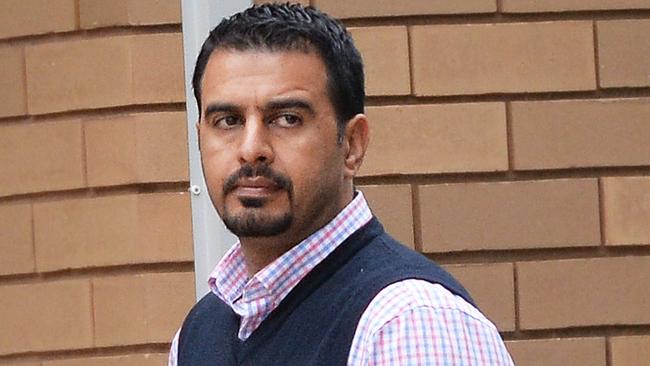Industry watchdog records rise in boundary violation complaints against health practitioners
There has been a surge of complaints against doctors, nurses and other workers sexually harassing patients and crossing boundaries. Search each profession here.

Victoria
Don't miss out on the headlines from Victoria. Followed categories will be added to My News.
Complaints against healthcare workers for sexual harassment, unwanted touching, patient relationships and other “boundary violations” have skyrocketed in recent years, with Victoria topping the list.
New figures reveal the industry watchdog received 841 boundary violation complaints against 728 registered health practitioners – including 323 Victorians – between July 2022 and June 2023.
The figures have tripled compared to the 2019-20 financial year, when 260 complaints were made.
The startling figures follow last year’s record of 925, with the Australian Health Practitioner Regulation Agency attributing the dramatic jump to their improved efforts to uncover and act on sexual misconduct.
Doctors have repeatedly attracted the most complaints, with 359 recorded last financial year, followed by 215 complaints against nurses.
The other top professions included psychologists (120), physiotherapists (33), dentists (25), paramedics (19) and chiropractors (16).
Boundary violations can range from inappropriate remarks and intimate touching without informed consent to patient relationships and sexual criminal offences.
Victoria has consistently recorded the highest number of AHPRA complaints in the country, but New South Wales and Queensland’s figures are not directly comparable as AHPRA is not the lead investigator in these states.
In a statement on the increased figures, AHPRA — who previously faced public criticism for their handling of allegations — highlighted their investments in training, expansion of their specialist investigative unit and social worker supports for victims and new complaint types introduced in 2019.
AHPRA chief executive Martin Fletcher said “ambitious” reform — outlined in February — takes time.
“But we’re making important inroads and we’re in this for the long haul,” he said.
In the past 12 months, investigations into 1000 complaints — which includes ones from previous years — were closed.
A record 114 cases were referred to independent tribunals — who have the power to ban healthcare professionals from work — while 239 were subject to restrictions, cautions or ordered to undergo education.
Data on how many of the investigations into the 841 allegations made last financial year were finalised was not yet public.
But these new figures bring the number of boundary violation complaints in the past decade to more than 4000 — equating to less than 1 per cent of registered professionals — and include:
Suspended doctor Atheer Hmood, who VCAT found had touched five women for a “hidden sexual purpose” under the guise of a medical exam.
Alberto Yabut who lost his nursing registration after VCAT found he had an “intimate” relationship with a vulnerable, suicidal mental health patient.
Gynaecologist Dr Suresh John, who VCAT suspended for three months for failing to obtain informed consent before an intimate procedure and telling the woman her husband would be “very happy” with his “tidy up”.
Medical Board of Australia specialist committee member Christine Gee said the system had been strengthened and it was “encouraging” to see more patients speaking up.
“Any hint of departure from appropriate professional boundaries is escalated quickly,” she said.




